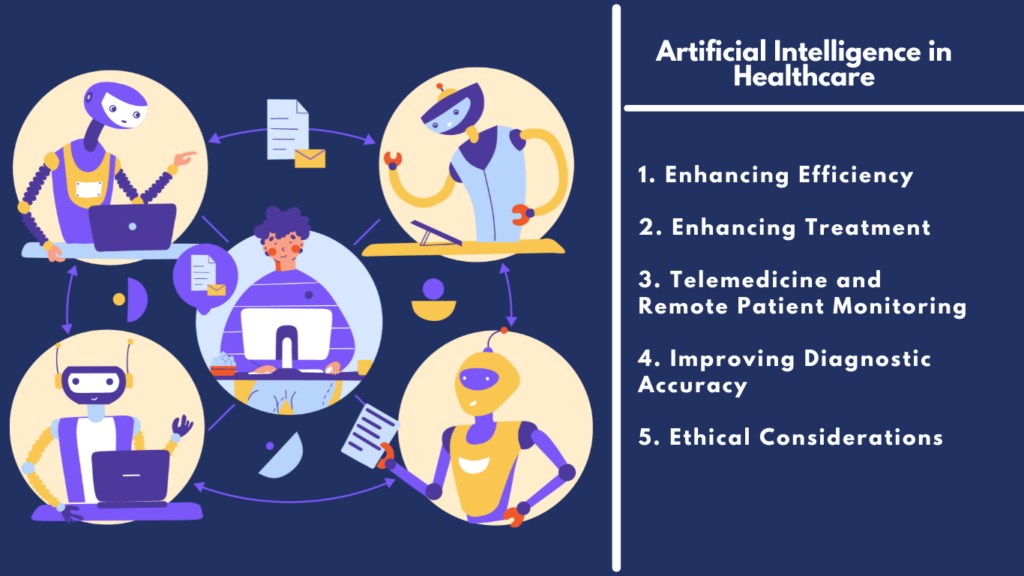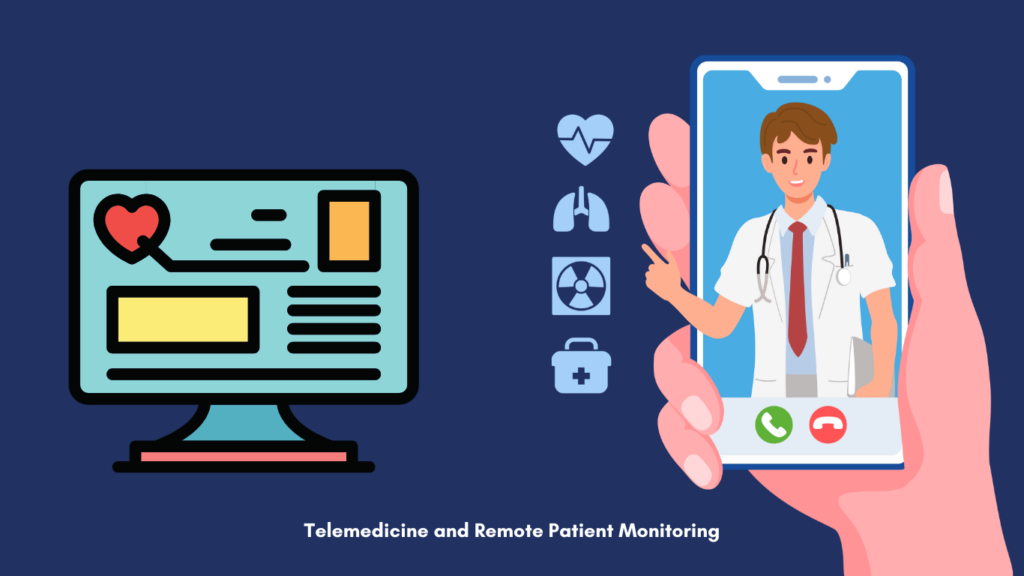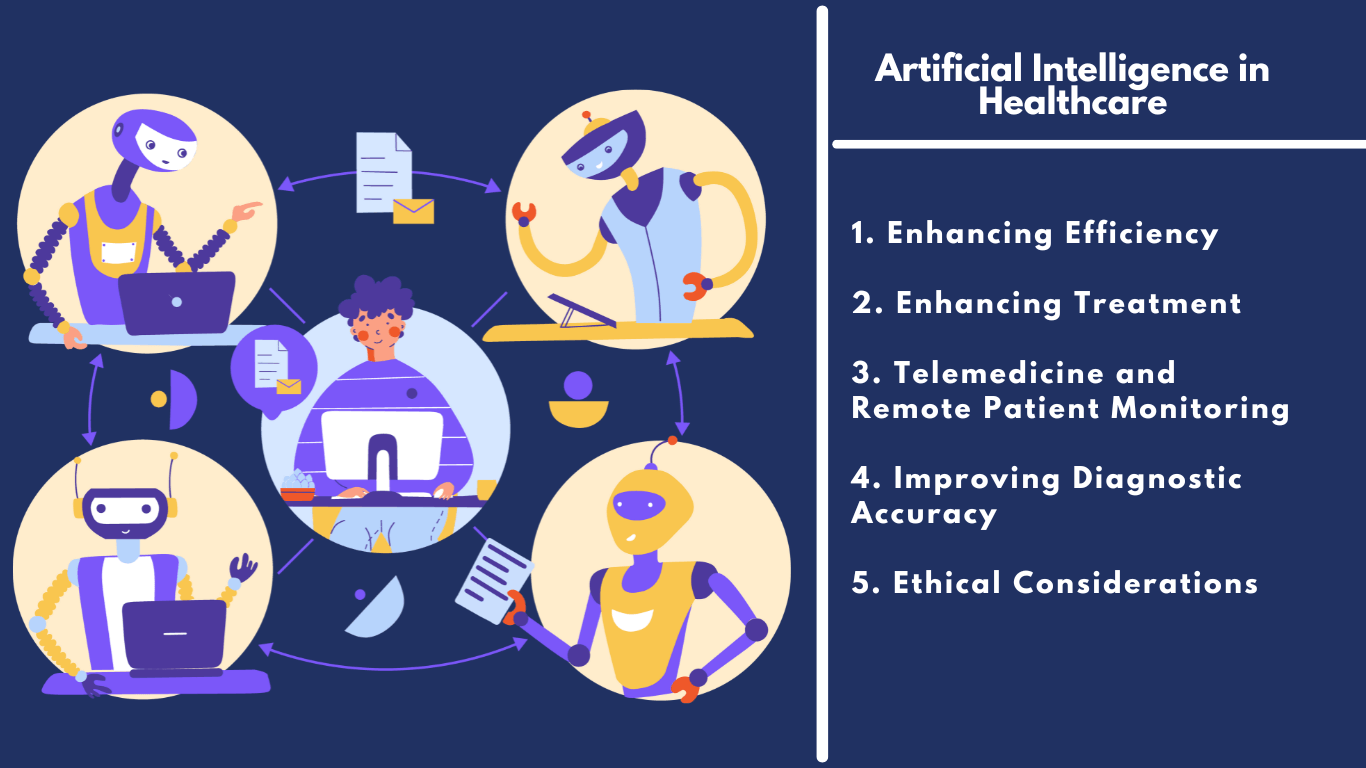Artificial Intelligence in Healthcare : . In this article, I will explore the various ways in which AI is enhancing patient care and improving efficiency in healthcare settings.

1. Enhancing Efficiency
In any healthcare system, efficiency is paramount. The ability to streamline processes and reduce unnecessary delays can significantly improve patient outcomes and satisfaction. Artificial intelligence has emerged as a powerful tool in achieving these goals.
One area where AI is making a significant impact is in patient scheduling and appointment management. By analyzing data from electronic health records (EHRs) and using predictive algorithms, AI can optimize scheduling practices, reducing wait times and maximizing the utilization of healthcare resources. This not only improves patient access to care but also decreases the burden on healthcare providers.
2. Enhancing Treatment
Artificial intelligence is also expanding treatment options in healthcare. By analyzing vast amounts of patient data and medical literature, AI algorithms can identify patterns and correlations that may not be immediately apparent to human clinicians. This allows for more personalized and targeted treatment plans.
One area where AI is particularly promising is in the field of precision medicine. Precision medicine aims to tailor medical interventions to individual patients based on their unique genetic makeup, lifestyle, and environmental factors. AI can assist in analyzing complex genomic data and identifying potential treatment options that are most likely to be effective for a specific patient. This not only improves patient outcomes but also reduces the risk of adverse reactions to medications or treatments.
In addition to precision medicine, AI is also being used to develop new treatment modalities. Machine learning algorithms can analyze medical images, such as CT scans or MRIs, to detect subtle abnormalities that may be missed by human radiologists. This early detection can lead to more timely interventions and improved prognosis for patients.
3. Telemedicine and Remote Patient Monitoring
Telemedicine, or the remote delivery of healthcare services, has gained significant traction in recent years. AI is playing a crucial role in enhancing the capabilities of telemedicine and remote patient monitoring.
AI-powered chatbots and virtual assistants can provide initial triage and support to patients, helping them navigate their symptoms and determine whether further medical attention is necessary. These virtual assistants can also provide personalized health advice and reminders, promoting self-care and preventive health measures.

Remote patient monitoring is another area where AI is making a substantial impact. By collecting and analyzing real-time data from wearable devices and sensors, AI algorithms can detect subtle changes in a patient’s vital signs or symptoms. This early detection allows for timely interventions and reduces the risk of complications. Remote patient monitoring also enables healthcare providers to remotely monitor and manage chronic conditions, improving patient outcomes and reducing hospital readmission.
4. Improving Diagnostic Accuracy
Accurate and timely diagnosis is crucial for effective treatment and management of diseases. AI is revolutionizing the diagnostic process by augmenting the capabilities of healthcare providers and improving diagnostic accuracy.
Machine learning algorithms can analyze medical images, such as X-rays or pathology slides, to detect abnormalities with a high degree of accuracy. These algorithms can quickly process large volumes of data and identify patterns that may be missed by human clinicians. This not only improves diagnostic accuracy but also reduces the time required for diagnosis, leading to faster treatment initiation.
AI-powered diagnostic tools can also assist in the interpretation of complex laboratory results. By integrating patient data, medical literature, and expert knowledge, these tools can provide healthcare providers with evidence-based recommendations for further testing or treatment options. This ensures that patients receive the most appropriate care based on their unique clinical presentation.
5. Ethical Considerations
While the potential benefits of AI in healthcare are immense, it is essential to address the ethical considerations and challenges associated with its implementation.One of the primary concerns is the protection of patient privacy and data security. AI systems rely on vast amounts of patient data to train and improve their algorithms.
Another challenge is the potential for bias in AI algorithms. If the training data used to develop AI models is not diverse and representative, it can lead to biased outcomes and perpetuate health disparities. It is essential to ensure that AI algorithms are developed using diverse datasets and undergo rigorous testing to mitigate bias.
Conclusion : Uses of Artificial Intelligence in Healthcare
Artificial intelligence is transforming healthcare by enhancing patient care and improving efficiency. From streamlining administrative tasks to improving diagnostic accuracy and expanding treatment options, AI has the potential to revolutionize the way we deliver healthcare. However, it is important to address the ethical considerations and challenges associated with AI to ensure that its implementation is done responsibly and in the best interest of patients.

